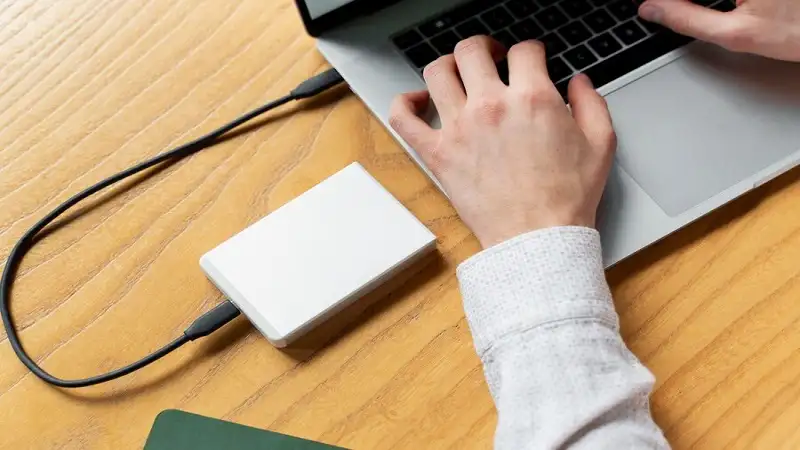Is your laptop battery not charging? This common issue can be frustrating. Many laptop users face the problem of their battery not charging. In this guide, we will explore the reasons behind this and provide solutions to help you fix it. We’ll cover everything from troubleshooting tips to hardware problems. By the end, you’ll understand how to resolve this issue effectively.
Common Reasons Why a Laptop Battery is Not Charging
Before diving into solutions, let’s discuss some common reasons why your laptop battery is not charging. These can range from simple settings to hardware issues.
1. Loose Power Connections
One of the most obvious reasons could be a loose power connection. Check if your power cord is securely plugged into your laptop and the wall socket. Even a slight disconnect can prevent charging. This is an easy fix but often overlooked.
2. Faulty Charger
Sometimes, the issue is with the charger itself. If your charger is damaged, it might not deliver the power your laptop needs. Inspect the cord for any frays, cuts, or bends. Using a faulty charger can stop the laptop from charging.
3. Battery Issues
Over time, batteries wear out. If your laptop is old, the battery may be nearing the end of its life. If your laptop battery is not charging even when plugged in, this could be a sign that the battery needs replacement.
4. Software Glitches
Software issues, including outdated drivers or corrupted system files, can sometimes cause the charging system to malfunction. These glitches can lead to your laptop battery not charging.
5. Overheating
If your laptop overheats, it may stop charging to prevent further damage. Overheating can be caused by dust buildup in the cooling fans or using the laptop on soft surfaces, which block airflow.
Troubleshooting Steps to Resolve the Charging Issue

Now that we understand the common causes, let’s move on to some basic troubleshooting steps. These solutions may help you fix the laptop battery not charging issue.
1. Check the Power Outlet
Sometimes the issue isn’t with the laptop or charger but with the power outlet. Try plugging your charger into a different outlet. You can also test the outlet with another device, such as a phone charger, to confirm if it’s working.
2. Inspect the Charger and Cable
Your charger might be the cause of the problem. To test it, try using a different charger compatible with your laptop. If your laptop starts charging, your original charger is likely faulty. If the problem persists, the issue could be with the battery or the laptop itself.
3. Restart Your Laptop
Restarting your laptop can sometimes solve minor software glitches. Turn off your laptop completely and remove the battery (if it’s removable). Wait for a few minutes, reinsert the battery, and turn the laptop back on. Check if the laptop battery is not charging issue persists.
4. Run Power Troubleshooter
On Windows laptops, there’s a built-in power troubleshooter that can help identify and fix charging issues. Follow these steps:
- Go to “Settings” and select “Update & Security.”
- Choose “Troubleshoot” and click on “Power.”
- Run the troubleshooter and follow any recommended steps.
If the laptop battery is not charging, the troubleshooter might give you insights or fix the issue.
5. Update Battery Drivers
Outdated or corrupted battery drivers can cause charging issues. Here’s how to update them:
- Press “Windows + X” and select “Device Manager.”
- Expand the “Batteries” section.
- Right-click on “Microsoft AC Adapter” and “Microsoft ACPI-Compliant Control Method Battery,” then choose “Update driver.”
- Restart your laptop after updating to see if the laptop battery is not charging issue is fixed.
6. Cool Down Your Laptop
If overheating is the cause, let your laptop cool down. Turn it off and give it time to rest. You can also clean out dust from the cooling fans with compressed air. Ensuring proper airflow can help maintain the laptop’s temperature and prevent further charging problems.
Advanced Fixes for Laptop Battery Not Charging
If basic troubleshooting doesn’t resolve the issue, you might need to explore more advanced solutions. Here are some techniques to tackle stubborn charging problems.
1. Reset the Battery Calibration
Battery calibration can sometimes fix issues with charging. Here’s how to reset the calibration:
- Charge your laptop to 100%.
- Once fully charged, disconnect the charger and let the battery drain completely.
- When the laptop shuts down due to low battery, plug the charger back in and fully recharge the battery.
- This reset process can sometimes solve the laptop battery not charging issue.
2. Check for BIOS or Firmware Updates
BIOS (Basic Input/Output System) updates can sometimes fix hardware-related issues, including battery problems. Manufacturers often release BIOS updates to improve performance or resolve bugs. Check your laptop manufacturer’s website for any available BIOS updates.
To update the BIOS:
- Go to the laptop manufacturer’s support page.
- Find the appropriate BIOS update for your model.
- Follow the installation instructions carefully.
Be cautious while updating the BIOS, as incorrect steps can harm your laptop.
3. Replace the Battery
If your laptop is still not charging after trying the above methods, it might be time to replace the battery. Laptop batteries have a limited lifespan, and after a few years, they lose their ability to hold a charge. If your laptop is older, a new battery may be the solution to the laptop battery not charging problem.
4. Visit a Repair Professional
If you’ve tried all the solutions and the laptop battery is still not charging, it might be time to consult a professional. Hardware issues, such as a damaged charging port or internal component failure, may require expert repair.
Preventing Laptop Battery Charging Issues in the Future
Taking care of your laptop’s battery can help prevent charging issues in the future. Here are some tips to prolong battery life and avoid the laptop battery not charging issue.
1. Avoid Constant Overcharging
Keeping your laptop plugged in all the time can degrade the battery’s capacity over time. It’s a good practice to unplug the charger once the battery is fully charged. This helps maintain the battery’s health.
2. Use the Right Charger
Always use the charger that came with your laptop or a certified replacement. Using an incompatible or low-quality charger can damage your battery or cause it to stop charging. Make sure the voltage and wattage of the charger match your laptop’s requirements.
3. Keep Your Laptop Cool
Overheating can shorten the life of your battery. Keep your laptop cool by using it on hard, flat surfaces and cleaning the cooling fans regularly. A cooler laptop will perform better and maintain battery health.
4. Monitor Battery Health
Some laptops come with battery management software that lets you check the battery’s health. Regularly monitor your battery’s condition and follow any recommended steps to maintain it. This can help you catch problems before they lead to the laptop battery not charging issue.
Conclusion
Dealing with a laptop battery not charging can be frustrating, but many of the problems can be fixed with simple troubleshooting. From checking your charger to updating drivers and cooling down your laptop, these steps can help you resolve the issue. If all else fails, seeking professional help or replacing the battery may be necessary. By following these tips, you can keep your laptop in good working order and avoid battery issues in the future. Taking care of your battery will ensure it lasts longer and keeps your laptop functioning smoothly. Read More Wealthybyte.
